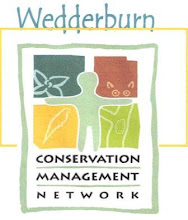
With mouse numbers increasing in the Wimmera-Mallee the Department of Sustainability and Environment (DSE) has called on landholders not to start making their own baits and inadvertently put wildlife and domestic animals at risk.
DSE north west biodiversity manager Murray Rohde said home-made baits have the potential to cause serious harm to wildlife and pose an increased risk to domestic animals and pets.
“Home-made, grain-based baits don’t use mouse-specific chemicals and so they often don’t work on mice,” Mr Rohde said.
“Home-made baits often have a much higher chemical concentration to ensure the same effect as commercial baits making them much more dangerous to wildlife and pets than the commercial baits.”
“Grain and mice are key sources of food for many species, including native birds, mammals and reptiles, and some domestic animals.”
“Native or domestic animals that eat grain or mouse carcasses in an area where home-made bait has been laid are at risk of off-target poisoning.”
“When trying to control mice, the best way to prevent off-target kills is to use approved mouse-specific baits and to monitor the results.”
DSE advises that it is illegal to use chemical products not registered for the control of mice to kill mice and other pests and asks people to:
· only use registered mouse baits
· keep your pets away from baits and dead mice to prevent secondary poisoning
· monitor for non-target animal deaths when baiting
· report any deaths to the bait supplier and the Department of Primary Industries
· avoid touching or handling the carcasses and keep your pets away in order to prevent secondary poisoning
· report any wildlife deaths that appear suspicious – for example a group of dead birds lying close together - to the local DSE office or call DSE 136 186.
“Last year, DSE investigated several cases of bird kills in the Wimmera and a number were found to have been caused by the misuse of farm chemicals,” Mr Rohde said.
Copied from a DSE media release

No comments:
Post a Comment